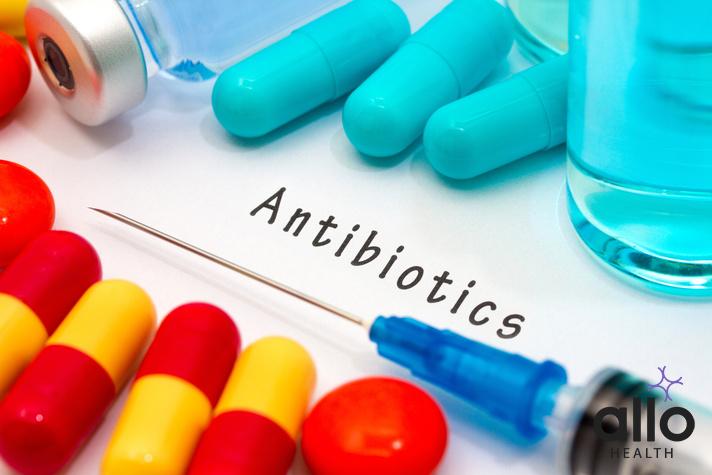Mycoplasma Genitalium (MG) Effective Treatment Options

Allo Health is dedicated to personalized well-being, offering support and trusted information tailored to individual health goals. The platform emphasizes human-generated content, led by a distinguished medical team of experts, including physicians and sexual health specialists. Their commitment to credibility involves rigorous fact-checking, authoritative research, and continuous updates to ensure accurate, up-to-date information. Allo Health's unique approach goes beyond conventional platforms, providing expert-led insights and a continuous commitment to excellence, with user feedback playing a crucial role in shaping the platform's authoritative voice.

Dr Sanina Mansoor holds MBBS degree from Yenepoya university,Mangalore.She has 8 years of experience working as a medical officer at various health centres and medical colleges.
Why This Was Upated?
Our experts continually monitor the health and wellness space, and we update our articles when new information became available.
Updated on 19 May, 2024
- Article was updated as part of our commitment to diversity, equity, and inclusion.

"The following blog article may discuss medical treatments and interventions. However, it is important to note that the information provided is for general educational purposes only and should not be considered as a substitute for professional medical advice, diagnosis, or treatment. Always seek the guidance of a qualified healthcare professional for personalized medical advice.
Book consultation
Medical treatments are complex and should be tailored to individual circumstances. The information presented in this blog may not be applicable to everyone, as each person's medical condition, history, and needs are unique. Only a qualified healthcare professional can evaluate your specific medical situation, consider relevant factors, and provide appropriate recommendations for diagnosis, treatment options, and monitoring.
It is crucial to note that self-diagnosis, self-medication, or relying solely on the information provided in this blog for treatment decisions can have serious health consequences. "
Mycoplasma genitalium (MG) is a bacterium that can cause sexually transmitted infections (STIs) in both men and women. It is one of the smallest known bacteria capable of causing disease in humans and is associated with conditions such as urethritis (inflammation of the urethra), cervicitis (inflammation of the cervix), and pelvic inflammatory disease (PID). MG infections are often challenging to diagnose and treat, requiring specific antibiotic therapies due to increasing antibiotic resistance. However, several effective treatment options are available for managing MG infections.
Diagnosis Of MG

Before discussing treatment options, it’s essential to highlight the importance of accurate diagnosis. MG infections can be asymptomatic or cause non-specific symptoms, making diagnosis challenging. Testing for MG typically involves:
- PCR Testing: Polymerase chain reaction (PCR) tests are highly sensitive and specific for detecting MG DNA in genital samples (urine, vaginal swabs, cervical swabs, urethral swabs). These tests can distinguish between active infections and past exposure.
- NAATs (Nucleic Acid Amplification Tests): NAATs are molecular tests that amplify and detect MG genetic material, providing accurate and reliable results.
- Culture Tests: Culturing MG in a laboratory setting is possible but less commonly used due to its lower sensitivity compared to PCR and NAATs.
Effective Treatment Options
Once diagnosed, treating MG effectively involves targeting the bacterium with appropriate antibiotics. However, due to rising antibiotic resistance, treatment regimens may vary based on local resistance patterns and individual patient factors. Some of the commonly recommended antibiotics for MG treatment include:
- Azithromycin: Azithromycin is a macrolide antibiotic often used as a first-line treatment for MG infections. It is administered as a single oral dose, which enhances patient compliance. However, resistance to azithromycin has been reported, highlighting the need for careful monitoring and alternative therapies if necessary.
- Doxycycline: Doxycycline, a tetracycline antibiotic, is another option for treating MG infections. It is typically given as a twice-daily oral regimen for a week. Doxycycline is effective against MG and can be used in cases of azithromycin resistance or as part of combination therapy.
- Moxifloxacin: Moxifloxacin, a fluoroquinolone antibiotic, is reserved for cases of MG infections that are resistant to both azithromycin and doxycycline. It is administered orally once daily for a week and has shown efficacy in treating refractory MG infections.
- Combination Therapy: In cases of persistent or recurrent MG infections, combination therapy may be recommended. This approach involves using two or more antibiotics with different mechanisms of action to target MG effectively and reduce the risk of developing further resistance.
Treatment Considerations

When determining the most suitable treatment for MG infections, several factors should be considered:
- Antibiotic Resistance: Local resistance patterns should guide treatment decisions to ensure the chosen antibiotics are effective against MG strains prevalent in the region.
- Patient Compliance: Single-dose regimens like azithromycin may improve patient compliance compared to longer antibiotics, leading to better treatment outcomes.
- Follow-Up Testing: Post-treatment testing is crucial to assess treatment efficacy and detect any persistent or recurrent infections. Follow-up testing is typically recommended 2-4 weeks after completing treatment.
- Partner Notification and Treatment: Because MG is sexually transmitted, partners of individuals diagnosed with MG should also be tested and treated if necessary to prevent reinfection and transmission.
- Avoiding Unprotected Sex: Patients should be advised to abstain from sexual activity or use condoms during treatment and until follow-up testing confirms clearance of the infection. This helps prevent the spreading of the disease to partners.
Emerging And Research

As antibiotic resistance continues to pose challenges in treating MG infections, ongoing research is focusing on alternative therapies and treatment strategies. Some areas of interest include:
- New Antibiotics: Researchers are exploring novel antibiotics or antibiotic combinations with activity against MG, aiming to develop more effective treatment options.
- Immunomodulatory Therapies: Immunomodulatory agents that enhance the immune response against MG are being investigated as potential adjuncts to antibiotic therapy.
- Bacteriophage Therapy: Bacteriophages infect and kill bacteria and are being studied as a targeted approach to treating antibiotic-resistant MG strains.
- Vaccine Development: Efforts are underway to develop vaccines against MG, which could provide long-term protection and reduce the reliance on antibiotic treatment.
Mycoplasma genitalium infections require prompt and appropriate treatment to alleviate symptoms, prevent complications, and reduce transmission. Effective treatment options include antibiotics such as azithromycin, doxycycline, and moxifloxacin, with consideration given to antibiotic resistance patterns, patient compliance, and follow-up testing. Emerging therapies and ongoing research hold promise for improving MG treatment outcomes and addressing challenges posed by antibiotic resistance in the future.
Most Asked Questions
-
What are the common treatment options for Mycoplasma Genitalium (MG)?
Common treatment options for MG include antibiotics such as azithromycin and doxycycline. Your doctor will determine the most suitable antibiotic based on factors like your medical history and the strain of MG.
-
How long does it take for treatment to be effective against Mycoplasma Genitalium (MG)?
The effectiveness of treatment can vary based on several factors, including the severity of the infection and the specific antibiotic used. Generally, it may take a few days to a couple of weeks for symptoms to improve after starting treatment. However, completing the full course of antibiotics is crucial to ensure the infection is completely eradicated.
-
Are there any alternative treatments or therapies for Mycoplasma Genitalium (MG) if antibiotics are not effective?
In cases where antibiotics are not effective or if the infection is resistant to standard treatments, your healthcare provider may consider alternative antibiotics or combination therapies. It's important to discuss any concerns or treatment options with your doctor to determine the best course of action.
-
Can Mycoplasma Genitalium (MG) be treated at home, or is medical intervention necessary?
While some mild cases of MG may resolve on their own, it is generally recommended to seek medical intervention for proper diagnosis and treatment. Home remedies or self-medication are not advisable, as they may not effectively treat the infection and could lead to complications or antibiotic resistance.
-
What should I do if I experience recurring Mycoplasma Genitalium (MG) infections despite treatment?
If you experience recurring MG infections despite completing treatment, it's essential to consult your healthcare provider. They may recommend additional testing, a different antibiotic regimen, or referral to a specialist in sexual health or infectious diseases for further evaluation and management. Regular follow-ups and adherence to treatment plans are crucial for managing and preventing recurrent infections.









































